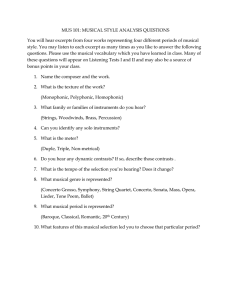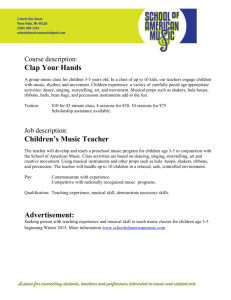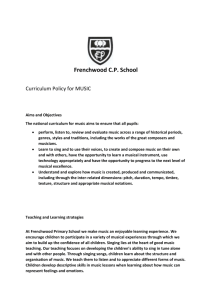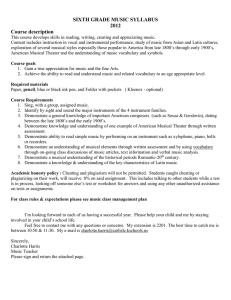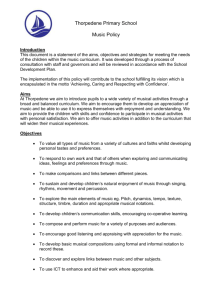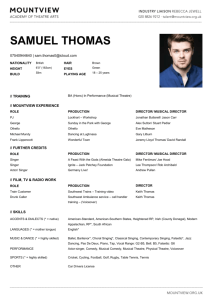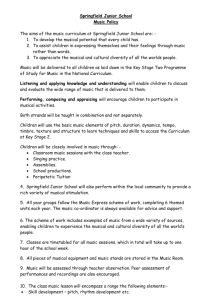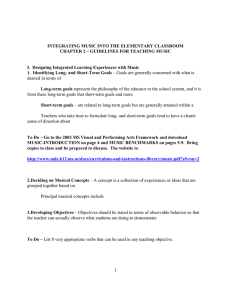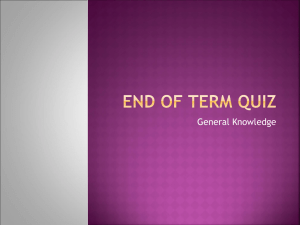Music policy - Dereham St. Nicholas Junior School
advertisement
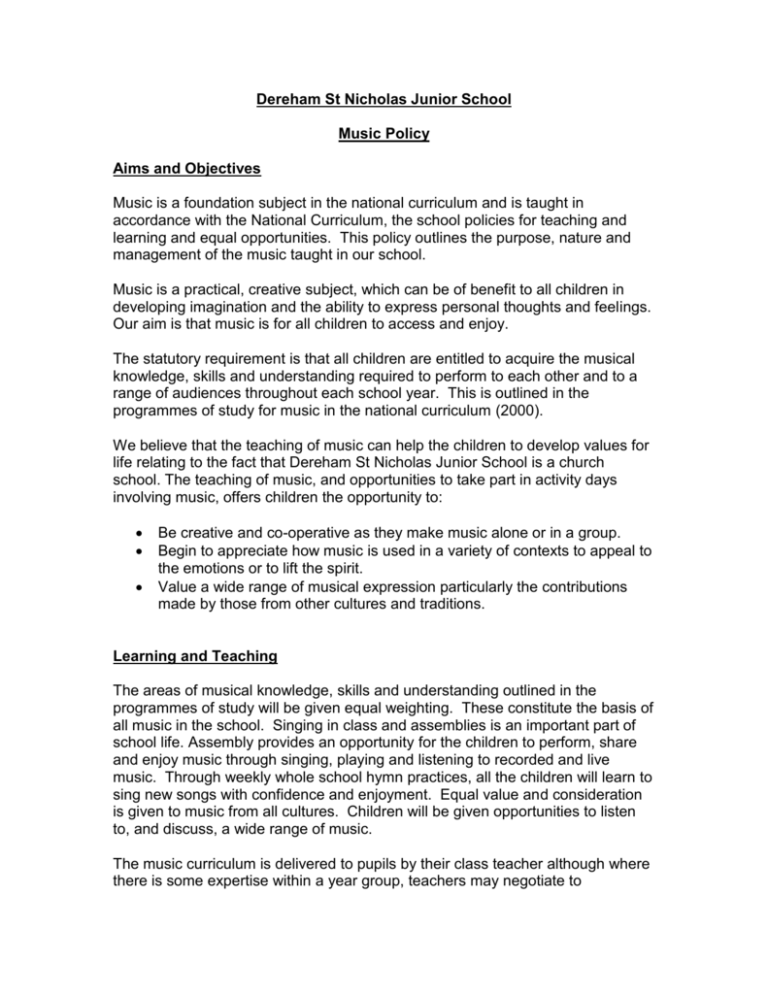
Dereham St Nicholas Junior School Music Policy Aims and Objectives Music is a foundation subject in the national curriculum and is taught in accordance with the National Curriculum, the school policies for teaching and learning and equal opportunities. This policy outlines the purpose, nature and management of the music taught in our school. Music is a practical, creative subject, which can be of benefit to all children in developing imagination and the ability to express personal thoughts and feelings. Our aim is that music is for all children to access and enjoy. The statutory requirement is that all children are entitled to acquire the musical knowledge, skills and understanding required to perform to each other and to a range of audiences throughout each school year. This is outlined in the programmes of study for music in the national curriculum (2000). We believe that the teaching of music can help the children to develop values for life relating to the fact that Dereham St Nicholas Junior School is a church school. The teaching of music, and opportunities to take part in activity days involving music, offers children the opportunity to: Be creative and co-operative as they make music alone or in a group. Begin to appreciate how music is used in a variety of contexts to appeal to the emotions or to lift the spirit. Value a wide range of musical expression particularly the contributions made by those from other cultures and traditions. Learning and Teaching The areas of musical knowledge, skills and understanding outlined in the programmes of study will be given equal weighting. These constitute the basis of all music in the school. Singing in class and assemblies is an important part of school life. Assembly provides an opportunity for the children to perform, share and enjoy music through singing, playing and listening to recorded and live music. Through weekly whole school hymn practices, all the children will learn to sing new songs with confidence and enjoyment. Equal value and consideration is given to music from all cultures. Children will be given opportunities to listen to, and discuss, a wide range of music. The music curriculum is delivered to pupils by their class teacher although where there is some expertise within a year group, teachers may negotiate to exchange. The teaching of music will mostly be based on the QCA schemes of work for the relevant year group to ensure that the requirements of the national curriculum for music are fulfilled. The Music Express scheme is followed by all year groups. The content for all music lessons will be chosen in the light of pupil's needs and should progress as their musical development and interest increases. Children are given opportunities to access a wide range of music throughout the school. They are able to join the choir, band, recorder, drama and hand bell groups. Children who show an interest in learning to play the flute, clarinet or violin may have lessons from specialist teachers on a peripatetic basis. All children are encouraged to take part in voluntary musical activities and do so because they gain a great deal of enjoyment through it. Resources The school is well equipped with musical instruments which are stored centrally in cupboards in the year 5 hall. Keyboards are also available and are stored in the year 5 hall. Each year group is supplied with the relevant Music Express book containing plans and teaching resources. Each book comes with a CD and CD-ROM. Further CDs are located in the resources room. The subject leader has a store of songbooks with CDs if required. The children are encouraged treat resources safely and appropriately, especially those which require mains supply. Assessment There is no formal assessment in music but children are assessed as an ongoing procedure. Informal assessments at the end of a QCA unit are completed when appropriate, to aid the teaching of the next unit. Music Express provides printable assessment sheets for each unit. Staff will report Music Assessments to parents using our school reports package. Recordings of performances of songs or compositions may be kept as evidence of children's attainment. The school policy for music reflects the consensus of opinion of the teaching staff who are responsible for its implementation. It was drawn up by those people under the direction of the subject leader for music and in discussion with Maureen Hanke, LEA Music Advisor. The policy should be monitored as an ongoing process and an evaluation into the effectiveness of the policy should be undertaken on a bi-annual basis. It was agreed by staff on 5th October 2009 The Policy will be reviewed no later than July 2011 Helen Debbage Subject Leader for Music

